Diagnosis and BICOM therapy of rheumatic disorders – case histories, dealing with initial exacerbation
Dr. med. Christa Lund, Bad Schwartau
Diagnosing rheumatic disorders
1. Clinical: symptoms, location, time
2. Multi-factorial causes
3. Resonance diagnosis
Toxins: Aflatoxin, Bacterial fragment, Botulinum, Parasitic toxins (trichinosis nosodes!) Other fungal toxins
Bacteria: Clostridium, Staphylococci, Yersinia, Borrelia
fields: Dental – maxillomandibular area (also malocclusion), Tonsils (scar interference field), Intestine
Focal stress!
Acid-base balance!
Treating rheumatic disorders
A) Non-specific:
1. Nutrition
2. Balancing the energetic state (vegetative reactivity)
3. Detoxifying measures
4. Treating acidaemia
5. Enzyme therapy
6. Homeopathic treatment
7. Phytotherapy
8. Isopathy
9. Symbiosis control
10. Interference field and focal therapy
11. Orthomolecular
12. Autologous blood
B) Treatment in the light of regulation blocks:
1. Toxin elimination
2. Parasites
3. Interference fields
4. Nosodes (bacteria, chlamydia)
C) Follow-up treatment:
Physical
Neurotherapeutic
Organotherapeutic
“Initial exacerbation”
1. Educating the patient
2. Chronic disease – acute condition -activation of endogenous counter-measures = regulation therapy
3. Observing biorhythms (lung, liver, kidneys)
4. Symptoms depending on patient’s vegetative reactivity
5. Options for therapy
Prevention: avoiding substances which will intensify the reaction
Synchronous: Elimination with resonance therapy, e. g. Engystol, Okoubaka via kidneys Solidago, via liver Chelidonium, milk thistle
6. Beware! Exacerbation induced by interference fields!
Suggested BICOM therapy
Toxin elimination
Elimination via liver or kidneys
Program no. 970 (H+Di)
I: quadr. flex. applicator on thymus area
O: magnetic articulated applicator on liver area
O: 1 foot on foot applicator
Then Ai program:
O: both hands via hand applicators.
Therapy type: Ai
Frequency: sweep in 3 seconds
Amplification: Ai=64, no stages
Continuous operation
Therapy time: 3 minutes
Parasite therapy
according to individual setting,
at least 3 therapy sessions
O: magnetic articulated applicator on solar plexus
O: 1 hand on hand applicator
Interference field therapy
via elimination of scar interference, program, no. 910 (Ai)
I: opposite hand or foot applicator to scar
O: magnetic articulated applicator on scar area
Pain therapy
Rheumatic pain, program no. 631 (H+Di)
I: magnetic articulated applicator on better joint
O: magnetic articulated applicator on more painful joint and also magnetic depth probe on scar
Hip joint
Hip joint problems (restricted movement),
program no. 620 (Di)
I: roller applicator on affected hip
O: magnetic articulated applicator on coccyx
Inflammations
Tissue process, chronic-degenerative,
program no. 923 (H+Di)
I: 5 spirals on fingers of right hand
O: magnetic articulated applicator between left shoulder
joint/clavicle
Lymph activation
Lymph activation, program no. 930 (A)
I: 4 right-spin spirals in groins and armpits
O: large flexible applicator on abdomen
Nosode therapy
A or Ai.
Or A and Ai.
O: 1 hand on hand applicator
O: magnetic articulated applicator on solar plexus
Setting A (provocation):
Frequency: sweep in 3 seconds
Amplification: A = 0.50, no stages
Continuous operation
Therapy time: 6 minutes
Setting Ai (gentle inverse treatment)
Frequency: sweep in 3 seconds
Amplification: A = 1.00, no stages
Continuous operation
Therapy time: 6 minutes
CASE STUDIES RHEUMATIC DISORDERS
Case 1: PCP
47-year-old female (V. H.). Painful swellings in the large joints for past 12 months. Persistent oedematous swelling in the fingers following extraction of all (!) teeth
Findings from resonance diagnosis:
Chlamydia D15, D30, D60
Entamoeba histolytica
Clostridium difficile D10
Staphylococcus aureus
Mucor mucedo
toxic stress: Botulinum D30, prednisolone D60, dioxin D100
acidaemia
organ stress:
tonsils, liver, pancreas, dental-maxillomandibular area (with teeth absent)
maxillomandibular: radicular cysts: radiological metal residue with cysts in upper jaw.
Therapy in order of application:
1. parasite
2. toxin elimination
3. nosode therapy for microbial infestation.
Accompanying medication:
enzyme therapy
lymphatic agents
antacids
isopathy.
Treatment period: 2 months.
Case 2: PCP
45-year-old female (B. W.). Painful swellings in the joints of all the limbs for past 3 years. Diffuse back pain. Cortisone and analgesics continuously for a year.
Findings from resonance diagnosis:
Fasciola hepatica
Chlamydia
Mucor racemosus
Yersinia enterocolitica
Shigella
Staphylococcus aureus
Therapy in order of application:
1. parasite
2. Chlamydia
3. other microbial pathogens.
Following initial improvement, deterioration after 7 teeth extracted in one session. Further staphylococcus treatment.
Accompanying therapy:
symbiosis control, enzyme therapy, vit. E, organotherapy adrenal cortex
non-specific treatment of consequences of joint deformities (e. g. pain following exercise, arthrosis).
Case 3: shoulder-hand syndrome
65-year-old male (D. O.). Pain in the back of the neck and right upper arm for 2 years, frequent headaches. Rupture of head of the biceps on affected side.
Interference fields:
cholecystectomy scar and
dental extraction scar on the right side.
Findings from resonance diagnosis:
Chlamydia D30
Entamoeba D30
Clostridium difficile D60, D100
Botulinum D60
no other toxic stress as already treated several years previously.
Therapy:
nosode therapy with accompanying symbiosis control.
alternating interference field therapy after testing relevant priority.
Case 4: generalised fibromyalgia
34 year old male metal worker. Increasing muscular pain associated with movement for past 2 years. Scarcely able to climb stairs.
Findings from resonance diagnosis:
Chlamydia D15, D30
hepatitis B D60
Taenia pisiformis
acidaemia
toxins: lead, cadmium, chromium, cobalt, nickel, tin
Therapy in order of application:
parasite treatment and therapy for microbial pathogens and also toxin elimination via the kidneys, in this case running parallel.
began with just one toxin elimination.
at next treatment session, started eliminating another metal.
careful attention to patient’s stress tolerance!
Due to very risky Chlamydia infection, nosode therapy for this pathogen was started before completing toxin elimination.
After 5 weeks’ treatment once or twice a week. Patient’s verdict: “several hundred % better”. Relapse 3 months later.
Findings from resonance diagnosis:
liver fluke (Fasciola hepatica)
enteromycosis
Serratia
Chlamydia D15, D30
heavy metals only identifiable in nosodes.
Interference field:
tonsillectomy scar (did not show initially).
Therapy:
parasite
interference field treatment
nosode therapy for Chlamydia infection and heavy metals
fungi and Serratia with BICOM Ai therapy (plus
resonance drops)
The patient was virtually symptom free after 10 days as the initial therapy had improved his autoregulatory capacity.
Case 5: diffuse muscular and joint pain
70 year old male. Borrelia infections diagnosed 1 and 2 years previously. Prior treatment with antibiotics, cortisone.
Findings from resonance diagnosis:
Borrelia D30
Chlamydia D60
Mucor racemosus
toxic stress: chlortalonil (pesticide)
organ stress: liver (cirrhosis D30), lungs, tonsils.
Therapy in order of application:
chlortalonil elimination
Mucor racemosus: Ai therapy and resonance drops
nosode therapy: Chlamydia and Borrelia
finally non-specific therapy on knee joint to improve functioning.
Sustained freedom from symptoms.
Case 6: chronic dorsalgia, Bechterew’s disease
26 year old male. Tendency to infection as a child. Spastic abdomen 10 years previously. Necessary symbiosis control was refused. Tonsillectomy 3 years previously, followed by onset of severe back pain. Only able to sleep sitting up. Movement generally restricted.
Findings from resonance diagnosis:
Chlamydia D15-D60
Bang’s disease D60
Salmonella D and TP D60, D100
Streptococcus haemolyticus D60
Klebsiella oxytocin.
fungal infection with Candida tropica, Penicill, commune
Taenia pisiformis
Interference fields:
tonsillectomy scar
later parasite.
Therapy in order of application:
interference field treatment according to tested priority before further therapy on same day (provided still tests as interference field)
nosode therapy
Klebsiella: Ai therapy and resonance drops
fungi: Ai therapy and resonance drops
Parasites
Treatment period: 2 months.
Subsequent treatment: symbiosis control.
